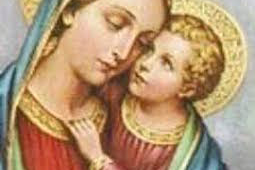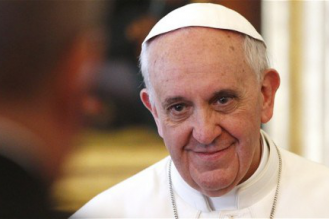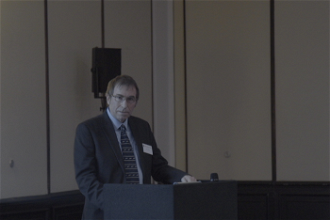Bishops of England, Wales & Scotland Joint Statement on Abortion

The Catholic Bishops' Conference of England and Wales and The Bishops' Conference of Scotland have issued the following statement this morning on the occasion of the 50th anniversary of the 1967 UK Abortion Act.
Executive Summary
This statement, published by the Catholic Bishops of England, Wales and Scotland, on the occasion of the 50th anniversary of the 1967 UK Abortion Act, is addressed not only to Catholics of our countries, but more broadly to all people who seek to uphold the dignity of human life and protect the unborn child. Over the last fifty years, the bishops of our countries, along with many other people, have spoken consistently in favour of the intrinsic value of human life and both the good of the child in the womb and the good of the mother. This anniversary provides an opportunity to lament the loss of life due to abortion and seek a change of minds and hearts about the good of the child in the womb and the care of mothers who are pregnant.
Fifty years ago, few envisaged the possibility of that there would be almost 200,000 abortions in Great Britain in 2015. Every abortion is a tragedy and few consider that abortion is the desirable or best solution to a pregnancy, which may be challenging on account of many different factors. The complex set of conditions in which a woman finds herself pregnant and may consider having an abortion may limit the exercise of freedom and diminish moral culpability. When abortion is the choice made by a woman, the unfailing mercy of God and the promise of forgiveness through the Sacrament of Reconciliation are always available. There is always a way home to a deeper relationship with God and the Church, as recent Popes have emphasised, which can heal and bring peace.
Today the language of 'choice' dominates discourse about marriage, gender, family and abortion. This needs further exploration. Choice has come to mean doing whatever I feel to be right for me - a very subjective view of the good - rather than taking into account a wider set of fundamental values. This is a very inadequate understanding of free choice, which requires an education in important truths about what is truly good and the possibility of other options. In this case, these must include the good of the unborn child, care and support for pregnant mothers, and the responsibility of the father.
This statement presents a number of different challenges for the future: a new understanding of the intrinsic value and worth of every human life in the womb, a better protection of unborn children diagnosed with a disability, a great need for education in moral responsibility about human sexuality and the meaning of sexual expression within marriage. Many professionals face the challenge that respect for conscientious objection against abortion has been eroded. Personal conscience is inviolable and nobody should be forced to act against his or her properly informed conscience on these matters. We encourage greater debate about this right and these challenges in our society.
Finally we thank many people, of religious faith and none, who have sought to protect unborn life and the life of the mother over the last fifty years; mothers who have continued their pregnancies in difficult circumstances, politicians who have sought to reform the legislation to better protect unborn life, those people whose prayers have been offered for greater respect to be shown to the wonder of the life in the womb, for mothers and those whose lives are cut short by abortion. Together let us better cherish life.
Statement on Abortion
This statement, published by the Catholic Bishops of England, Wales and Scotland is addressed primarily to the Catholics of our countries, but more broadly to all people who seek to uphold the dignity of human life and protect the unborn child. The anniversary of the 1967 UK Abortion Act provides an opportunity to reflect on abortion through the experiences of women and families over the past 50 years,[1] in light of medical and social advances and the ethical issues involved.
1. The 50th Anniversary of the Abortion Act
The Abortion Act was passed fifty years ago, in part to address the problem of illegal abortions. In 2015 alone, in England and Wales, 185,824 abortions took place. In Scotland, in the same year, there were 12,134.[2] Even despite the concerns raised at the time, it would, perhaps, have been difficult to predict that the number of abortions in our countries would have increased to such an alarming level. With this, there has also been a significant broadening and interpretation of the grounds on which abortions can be carried out. In spite of these statistics, few truly consider that abortion is desirable or the best solution to a pregnancy which may be challenging on account of many different possible factors. Indeed, there is widespread unease among many people who recognise that a woman's decision to have an abortion carries with it tragic consequences. At the same time, there are strong voices that advocate a woman's choice. Together, these different views express something of the complexity and dilemmas surrounding abortion and its legislation.
2. What does it mean to choose?
Over these last fifty years, we, the Catholic Bishops of Scotland, England and Wales, have spoken consistently in favour of the intrinsic value of human life and of the good of the child in the womb and the good of the mother.[3] The lives of both are precious, valued and to be protected. This position differs considerably from that of those who hold that the freedom to choose in the question of abortion must focus on the good of one of these lives alone.
During these fifty years, the appeal to freedom of choice in our society has become increasingly centred on the resolution of dilemmas and difficulties according to their emotional impact and our immediate desires. This is a very narrow understanding of choice which ignores any reference to more fundamental values. In this, a subjective desire is often claimed to be a rightful choice. This inadequate interpretation has become a dominant factor which shapes our society's conversation about marriage, gender, family and indeed abortion. Following slogans is never a firm basis for good decisions. Rather, we hold that such decisions require a grounding in good formation and sound perspectives which both adhere and aspire to important truths about what is genuinely good.
In making choices, we should always seek to do that which upholds human dignity in the service of human life. Our choices should be the fruit of mature consideration, fully informed of the consequences and implications of our action. We have the gift of free will and also the capacity and responsibility to exercise it well, unless something inhibits our freedom. Good decisions and choices are difficult to make if we are under pressure, frightened, alone, and deeply unsure about what to do.
Each individual's choice must take into account the wider ramifications of their decisions which, inevitably, have a profound effect beyond the person making them. In the case of abortion, decisions and choices need to acknowledge the duty to cherish human life and to foster its flourishing beyond the circumstances of any one person, however challenging these may be.
3. Recognising the difficulty of decisions
Deciding to have an abortion is a grave decision. The process of decision making occurs in diverse circumstances and is influenced by different considerations: a perceived threat to mental or physical health; not knowing how to cope with the situation of being pregnant; being alone or pressurised; not knowing where your support will come from; the diagnosis of disability for the child in the womb; knowing that a child will bring extra financial burden on already stretched means. The issue of abortion not only has consequences for mothers, but also affects fathers, both in terms of taking responsibility to protect and care for the children they have conceived and in coping with the impact of abortion. In such situations, the capacity to exercise choice can be compromised with a consequent limitation on a person's moral culpability.
Echoing the teaching of Pope St John Paul II, in his letter The Gospel of Life, paragraph 99, Pope Francis has written of those who have had an abortion:
"I am well aware of the pressure that has led them to this decision. I know that it is an existential and moral ordeal. I have met so many women who bear in their heart the scar of this agonising and painful decision. What has happened is profoundly unjust; yet only understanding the truth of it can enable one not to lose hope." (Letter to Archbishop Fisichella for the Year of Mercy, 1 September 2015)
Both Popes, however, recognise the burden of guilt that often accompanies the decision to destroy a human life in the womb. Both speak insistently of the unfailing mercy of God for all who turn to Him in repentance and with a desire for forgiveness. As Pope St John Paul II said:
"If you have not already done so, give yourselves over with humility and trust to repentance. The Father of mercies is ready to give you his forgiveness and peace in the Sacrament of Reconciliation. To the same Father and his mercy you can with sure hope entrust your child." (The Gospel of Life, paragraph 99)
4. The Intrinsic Value and Worth of Every Human Life
The 50th anniversary of the Abortion Act also gives us an opportunity to reflect on the truth about the dignity of human life and the vitality and potentiality of the child in the womb. The Church's consistent affirmation that human life begins at conception emphasises this unique beginning of human existence. The challenge that faces our society today is to recover an understanding of the immeasurable good of each unborn child and to value his or her life with even greater respect.
A particular contradiction occurs in relation to the legislation permitting the abortion of an unborn child diagnosed with a disability. The law of the United Kingdom permits the abortion of a child with disability up to birth and stands in stark contrast to the protection and respect shown to people who experience disabilities after they are born. The past fifty years have witnessed a deepening of society's respect and understanding for people with disability, and legislation has helped disabled people achieve fulfilling lives. The witness of those who compete in the Paralympic games shines out as a way in which people with disability excel and compete, using their gifts to the full. We hope that greater reflection and consistency in the approach to unborn children with disabilities will lead to a change in understanding, with greater protection provided through new legislation.
In comparison with 1967, the prenatal care of unborn children has improved remarkably. Indeed, the survival and healthcare of premature babies has seen significant medical breakthrough and advances. We hold in high esteem all those who dedicate their lives to serving in antenatal and special care baby units for their commitment to nurturing human life in its early stages.
The 50th anniversary of the Abortion Act invites further reflection on how women are supported and helped during pregnancy. In comparison with fifty years ago, our society and Church have a much greater acceptance of single mothers, and often provide assistance for those who need it. Much more, however, needs to be done.
We recognize that there has also been an erosion of respect for those with conscientious objections against abortion. This has affected members of the medical and healthcare professions who face increasing difficulty in being able to combine their dedicated professional work with their personal conviction. So much talent is being lost to important professional areas. Personal conscience is inviolable and no-one should be forced to act against their properly formed conscience in these matters. This is something which needs greater debate in our society. Most recently we have witnessed the possibility of pharmacists losing their right not to dispense abortifacients if it is against their conscience or religion.
5. Learning to respect life
Parents and educators in schools have a particular duty to help shape the values and attitudes of children and young people. Against the dominant cultural trend that often sees abortion as being about "the right to an obvious and free choice," there is an urgent need to teach about the inviolability of human life, from conception to its natural end, and to help everyone appreciate the value of every human life, without exception.
We thank those generous young people who strive to promote pro-life values. They are a real encouragement and inspiration, in the Church and in society. It is vitally important for young people to gain a deep understanding of the meaning of human sexuality and the place of the sexual relationship as an expression of love within marriage. We know that formation in chastity helps young people to flourish in a mature and genuine way. The Church's continuing work in developing programmes of Love and Relationships Education will help young people to appreciate the beauty of a sexual relationship in the context of marriage, and the gift of parenthood as a vocation in the Lord.
6. Giving thanks and looking ahead
We have the highest regard for every woman who, in difficult and adverse conditions, has made the courageous decision to continue her pregnancy and give birth to her child. We thank the charities, and those who donate to them, for their solidarity and support.
It is our desire and aim that those who face agonising decisions surrounding pregnancy should be fully informed of both the positive alternatives which would enable them to keep their child and the tragic consequences of abortion.
We are grateful to all those who work through our political system to protect human life from the moment of conception. We urge those who seek to reform the current abortion legislation to continue their good work.
We are aware that people of all faiths, and of many different convictions, uphold the duty to protect the unborn child. This 50th anniversary needs to bring about a new debate to change attitudes towards human life in the womb, to promote what it means to make good and authentic choices, and to protect and care for mothers and their children.
As Catholics, we urge that, throughout our countries, prayer and fasting be used for the protection of human life, especially for life within the womb, for all expectant mothers, for fathers and families. We ask the intercession of Our Lady of Guadalupe and St Raymund Nonnatus, the patron saint of childbirth, midwives, children, pregnant women.
Let the final word come from Pope Francis, preaching in 2005 on the Feast of St Raymund, when he was Archbishop of Buenos Aires:
"All of us must care for life, cherish life, with tenderness, warmth…to give life is to open our heart, and to care for life is to give oneself in tenderness and warmth for others, to have concern in my heart for others. Caring for life from the beginning to the end. What a simple thing, what a beautiful thing…So, go forth and don't be discouraged. Care for life. It's worth it."
Vincent Cardinal Nichols, President, Catholic Bishops' Conference of England and Wales
Archbishop Philip Tartaglia
President of The Bishops' Conference of Scotland
See: http://catholicnews.org.uk/abortion-act-joint-stmt-231017 (at 11.00)


















